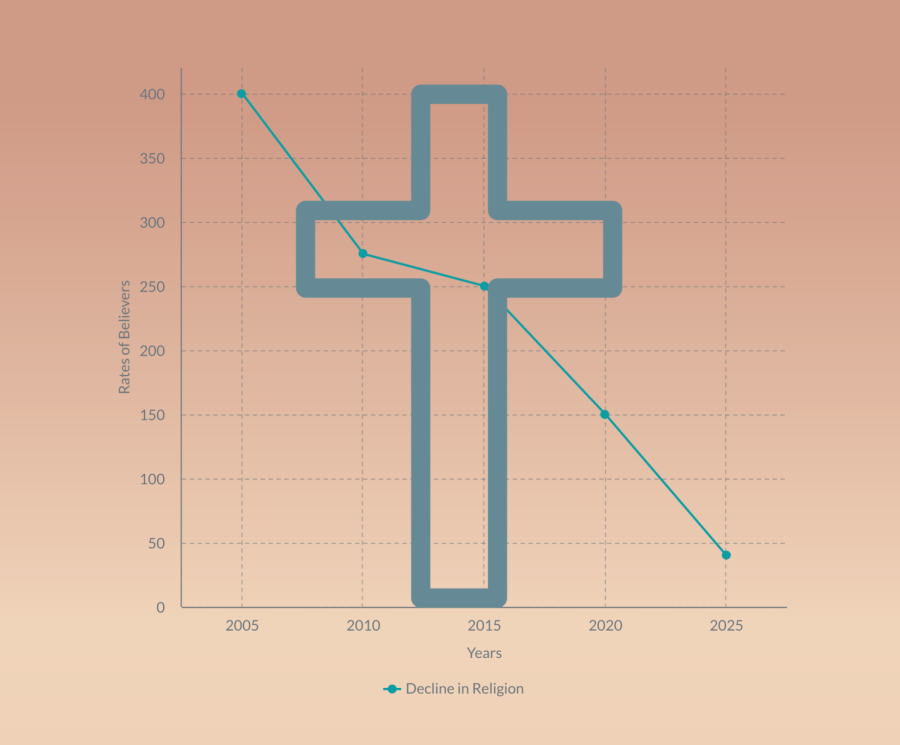A Fresh Wave of Young Atheism
Many young non-christians hold a bad impression of what Christianity is today.
This graph depicts the decline of Christianity’s popularity over the past 2 decades.
Throughout the past decades, Christianity has been claimed to be easily the most problematic religion of them all. A vast majority of young churchgoers (ages 16-29 years old) have found problems with Christianity and the church. Feelings of judgment, pressure, and unrealistic expectations cloud over the opinion of whether religion itself could be beneficial for them or not.
At increasing rates, higher than any other generation, Gen-Z is showing less interest in religious affiliation due to misconceptions, powerful influences, and current, cultural dilemmas.
Most non-believers find themselves disinterested in Christianity because of its external factors. One misconception is that a person must rely on the church and its people for individual faith. By following this principle, one might believe that Christ’s character can always be found in the flawed members of the church. Christian author Gabe Lyons writes, “Eighty-five percent of young outsiders have had sufficient exposure to Christians and churches and they conclude present-day Christianity is hypocritical.”
Previous generations did not have the same exposure that Gen-Z has had. While other generations prioritized a different reason for not believing, the younger generation focuses on a reason that comes from their own personal experience in a church. Research has found that the main factors as to why young people separate from faith is disagreement with either the behavior of Christians or political stances. In January, 2018, Barna, a research company focused on the intersection of faith and culture, shared that “the percentage of Gen Z (the group of young people following the Millennials) that identifies as atheist is double that of the U.S. adult population” (Barna).
Potentially, any previous negative experience with faith that caused a young person’s reason for not believing can also affect the way they think of the religion in general. That misconception could be thought to be true of every part of Christianity. An individual could be misled on what true, personal faith looks like based off of a preconceived notion.
Nowadays, the pressure from society towards Christianity has caused followers to rethink their beliefs. The problem arises of whether Christians should conform for the sake of staying relevant to the younger generation or ignore the problem altogether.
While the members of the church and those who have accepted Christ in their lives are meant to represent Christ in an active way, members and church ministries can fall short. The church and other areas that help to grow an individual’s faith are always in progress to improve and polish the ways in which it follows a Biblical standpoint.




